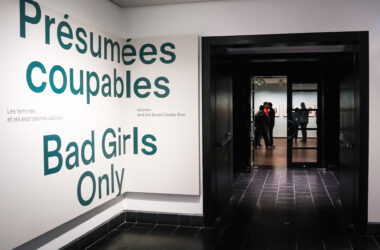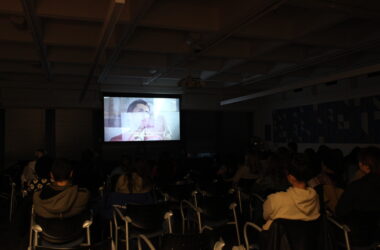In 1980, when Dr. Hy Goldman first brought Boston’s Klezmer Conservatory Band to Montreal, not many people believed that the near-forgotten musical tradition of Klezmer could be revived. Roughly defined as the music of Eastern European Jewry, Klezmer had all but disappeared after the Second World War.
“No one knew anything about the music,” says Goldman. “It had essentially died.”
Since that time, however, Klezmer has experienced a pronounced re-birth due to the efforts of organizers such as Goldman and the musicians he promoted. KlezKanada, a summer festival of Yiddish art and culture, is certainly one of the most exciting manifestations of the Klezmer revival.
Founded by Goldman in 1996, KlezKanada has grown from a weekend retreat into a weeklong event, which took place this year between Aug. 20 and 27. Located on the spacious and picturesque grounds of Camp B’nai Brith in Lantier, Quebec, the festival drew almost 500 people, including 60 faculty members. Though many of the attendees are locals, KlezKanada is truly an international event, attracting participant from all over North and South America, Europe and Israel. The festival also sponsors approximately 120 scholarship students who come from as far away as Russia, Ukraine, Belarus and Estonia.
While the main focus of KlezKanada is music, the program also includes dance, drama, visual arts and folk crafts, language, literature and film. As Goldman explains, the goal of the festival is to “maintain the 1,000 year-old Ashkenazic civilization by bringing the music and culture together.” Given both the energy and diversity of the festival and its participants, both of these goals are being reached. As KlezKanada fellow and Brooklyn clarinet player Michael Winograd states, “I don’t see it as a revival anymore – I see it as living.”
In addition to KlezKanada’s many workshops and discussion groups, one of the festival’s main attractions are the nightly concerts and cabarets, where impromptu performances and jams are not uncommon. Highlights from this year included performances by celebrated Klezmer personality Theodore Bikel, who played the lead in the 1971 film version of Fiddler on the Roof, and legendary pianist Irving Fields, renowned for his 1959 Klezmer-Latin fusion album Bagels and Bongos. Guest celebrities aside, KlezKanada also boasted its own world-class faculty, including artistic directors and Klezmer pioneers Michael Alpert of Brave Old World and Jeff Warschauer of the Klezmer Conservatory Band. This year the festival was also pleased to include McGill’s own Professor of Cello, Matt Haimovitz.
Though KlezKanada has by now grown to reach its maximum capacity, its organizers and participants already have other projects in the works. “The focus now is on outreach,” explains Goldman. Efforts include a record label, which has already released a faculty anthology album, and additional educational programs are in the works. Goldman also hopes to put together a KlezKanada faculty band that will go on tour, though plans have yet to be finalized.
“We’re in a renaissance right now,” Goldman proclaims. “The music itself has taken hold.”
For further information visit www.klezkanada.com








